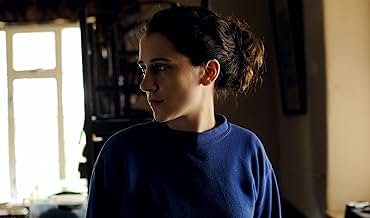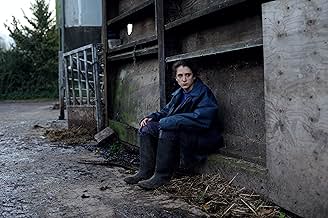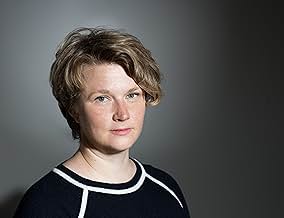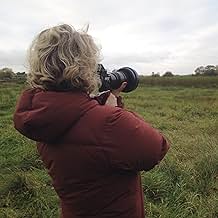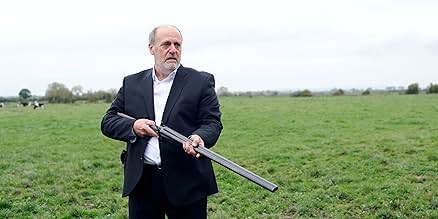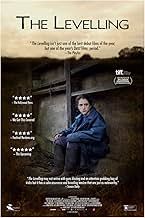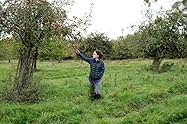IMDb RATING
6.4/10
2.8K
YOUR RATING
Trainee vet Clover Catto revisits family farm after brother's suicide. Confronts father over farm's disrepair and brother's death, uncovering family secrets and childhood revelations.Trainee vet Clover Catto revisits family farm after brother's suicide. Confronts father over farm's disrepair and brother's death, uncovering family secrets and childhood revelations.Trainee vet Clover Catto revisits family farm after brother's suicide. Confronts father over farm's disrepair and brother's death, uncovering family secrets and childhood revelations.
- Awards
- 3 wins & 6 nominations
- Director
- Writer
- All cast & crew
- Production, box office & more at IMDbPro
Storyline
Did you know
- TriviaOn the BBC News channel review of the year in film in 2017, critic Mark Kermode named this as his favourite British film of the year.
- GoofsWhen they are preparing to eat shepherd's pie, Aubrey says 'Do you want a drink James?' but when James refuses Aubrey says 'Oh come on Harry. Don't be such a girl.'
- Soundtracks13 Angels Standing Guard 'Round The Side of Your Bed
Performed & written by Thee Silver Mt Zion (as A Silver Mt. Zion)
Published by Rough Trade Records
Courtesy of Constellation
Featured review
Clover, a veterinary student returns to the family farm following a bereavement in the family. Her father is struggling with grief over far more than this latest loss, having given up a military career to take over the farm decades earlier.
Death stalks the story as Clover's relationship with her father, mother, brother and even family dogs is explored. I almost had a feeling of in amongst the action, learning about real people through meeting them and picking up pieces of the jigsaw from each in turn. The story is so convincing that I could imagine it being filmed sequentially, with the actors learning plot twists just as we do.
Watching critically, there were perhaps two occasions when characters reacted in ways I had not expected, but I realised that they were correct and it was my anticipation that was wrong. Every revelation was something long known about but ignored or repressed. The jolt of parts falling into place was tangible; not just Clover but Aubrey and James too made discoveries about themselves and others around them.
There was minimal theatricality. Characters came and went with no introductions or explanations. Helen's character was a tiny joy, a gem of a part. The weakest character was the vicar arranging the funeral. I understand why it was necessary, but I would expect her to lead parishioners to their own conclusions, not trot out some amateur psychology. Her limited screen time would have had to be much longer to accommodate that.
Death, mud, decay, rain and stoic acceptance of tragedy run as constant themes. Images of hares play the role performed by background music in lesser films, with one swimming, then sinking lifelessly, only for the closing shot to be a hare running in the inevitable rain. No easy answers in this film, but an astonishingly brave exercise in respecting the audience to fill gaps rather than having the script explain everything.
I would be interested to know whether Hope Dickson Leach had the idea already and the real flood was a fortuitous coincidence, whether it was a hastily put together (probably largely improvised) story in response to the damage, or some other combination of theme and natural circumstance.
Death stalks the story as Clover's relationship with her father, mother, brother and even family dogs is explored. I almost had a feeling of in amongst the action, learning about real people through meeting them and picking up pieces of the jigsaw from each in turn. The story is so convincing that I could imagine it being filmed sequentially, with the actors learning plot twists just as we do.
Watching critically, there were perhaps two occasions when characters reacted in ways I had not expected, but I realised that they were correct and it was my anticipation that was wrong. Every revelation was something long known about but ignored or repressed. The jolt of parts falling into place was tangible; not just Clover but Aubrey and James too made discoveries about themselves and others around them.
There was minimal theatricality. Characters came and went with no introductions or explanations. Helen's character was a tiny joy, a gem of a part. The weakest character was the vicar arranging the funeral. I understand why it was necessary, but I would expect her to lead parishioners to their own conclusions, not trot out some amateur psychology. Her limited screen time would have had to be much longer to accommodate that.
Death, mud, decay, rain and stoic acceptance of tragedy run as constant themes. Images of hares play the role performed by background music in lesser films, with one swimming, then sinking lifelessly, only for the closing shot to be a hare running in the inevitable rain. No easy answers in this film, but an astonishingly brave exercise in respecting the audience to fill gaps rather than having the script explain everything.
I would be interested to know whether Hope Dickson Leach had the idea already and the real flood was a fortuitous coincidence, whether it was a hastily put together (probably largely improvised) story in response to the damage, or some other combination of theme and natural circumstance.
- silvio-mitsubishi
- Sep 20, 2019
- Permalink
- How long is The Levelling?Powered by Alexa
Details
Box office
- Budget
- £1,000,000 (estimated)
- Gross US & Canada
- $3,040
- Opening weekend US & Canada
- $160
- Mar 26, 2017
- Gross worldwide
- $118,451
- Runtime1 hour 23 minutes
- Color
- Aspect ratio
- 2.35 : 1
Contribute to this page
Suggest an edit or add missing content





